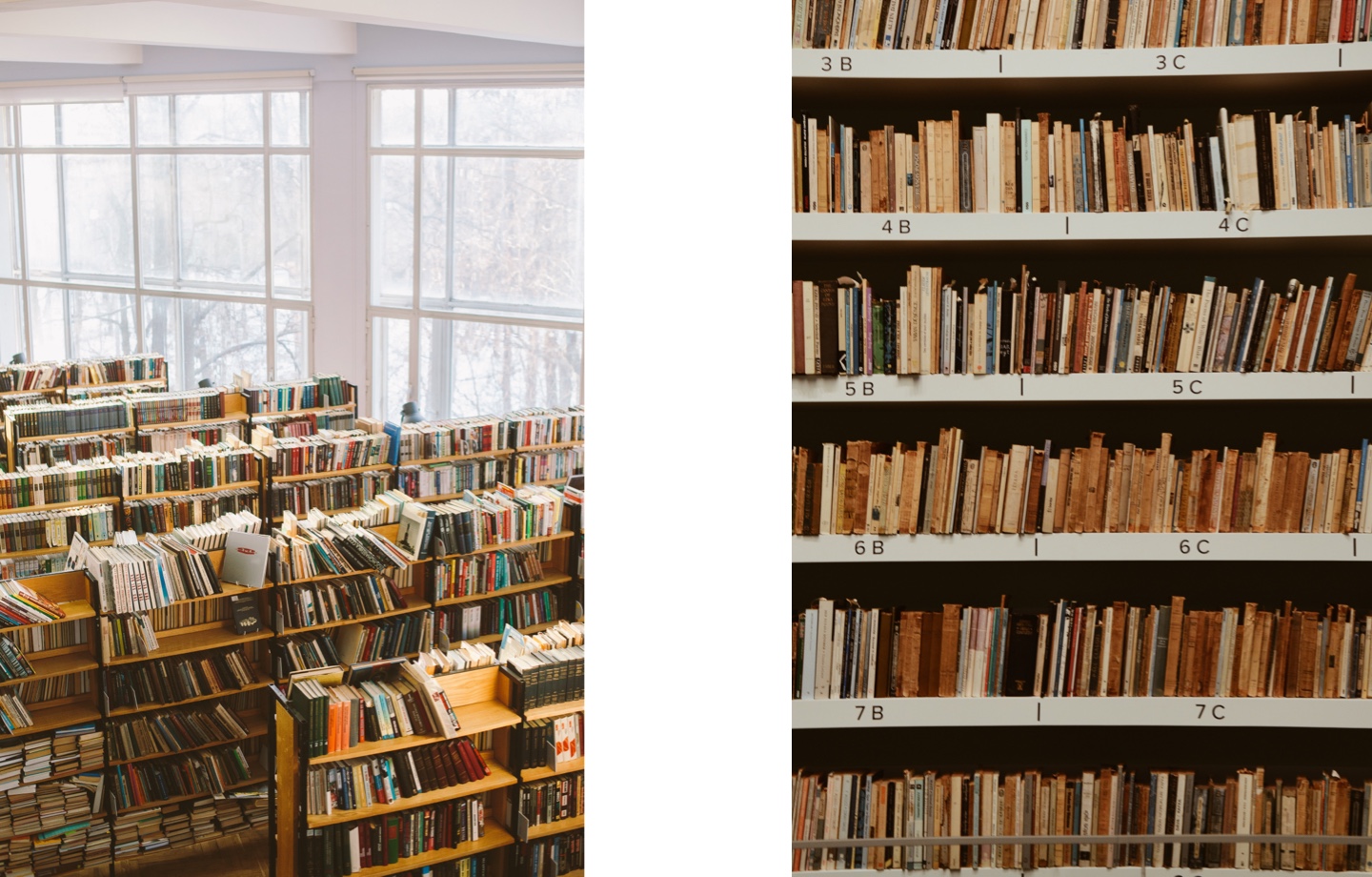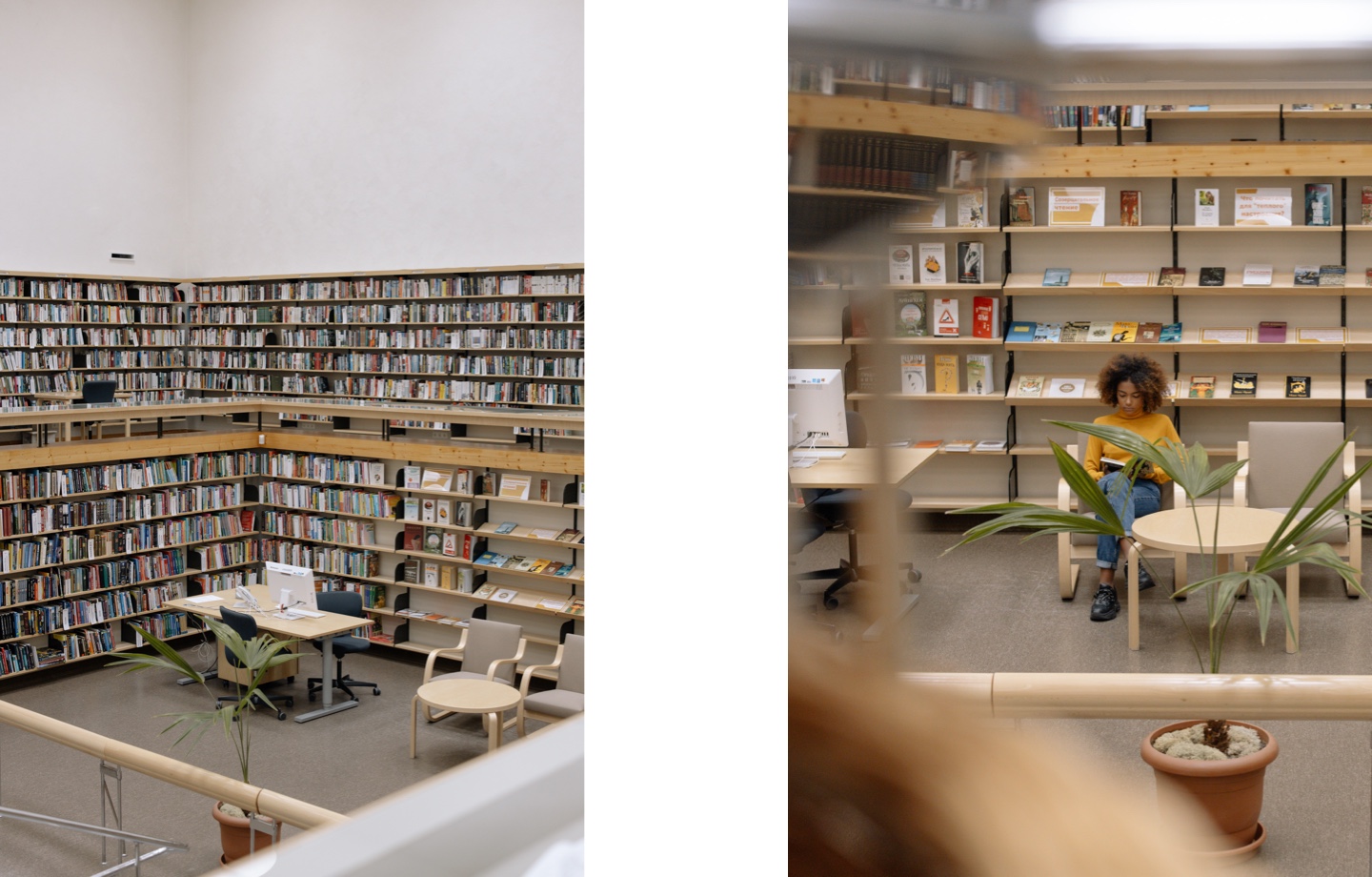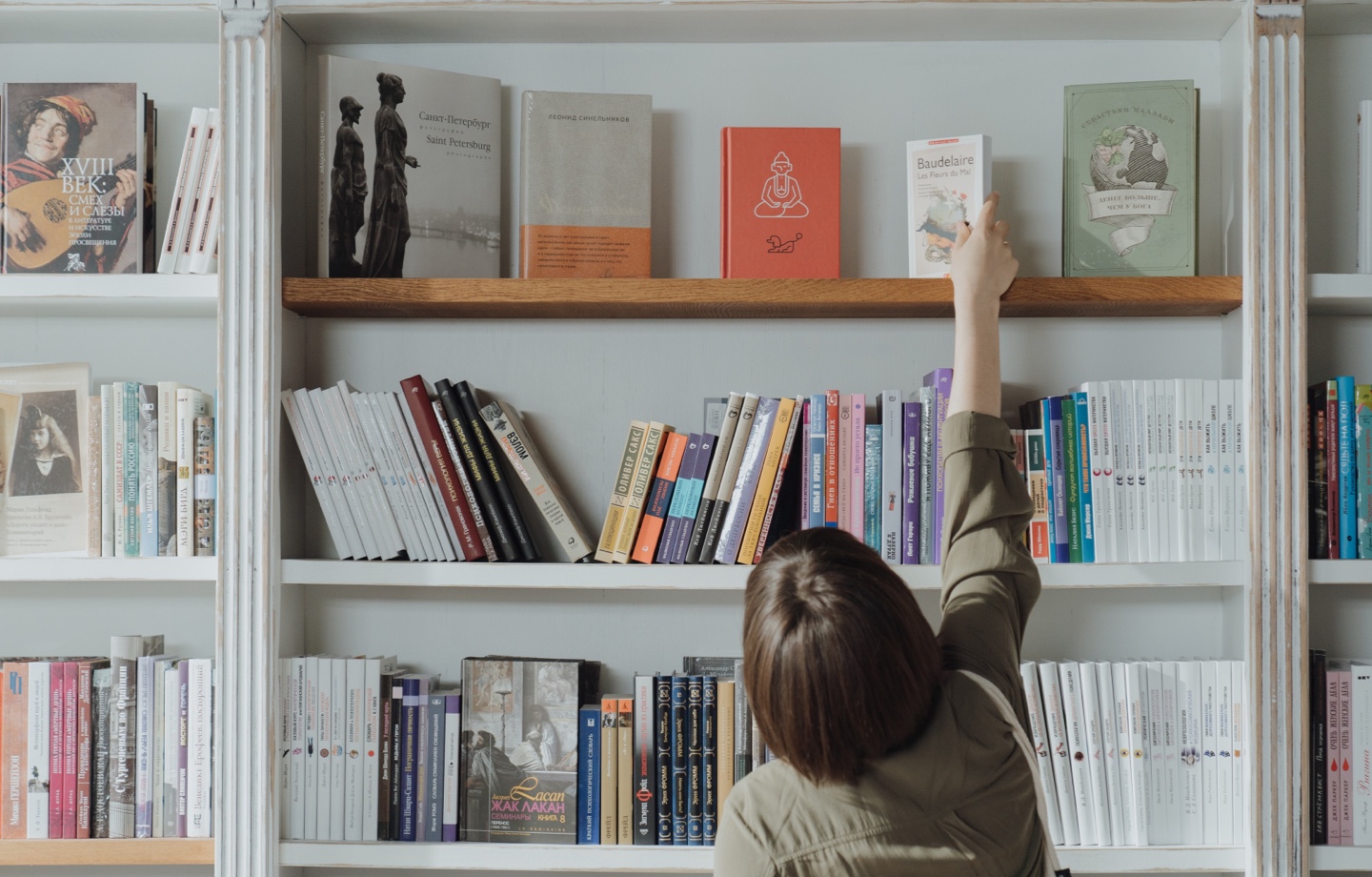For Library Card Sign Up Month, we are celebrating the eco-friendly resources, tools, and programs libraries offer for free.
There is no exchange of money at libraries, yet they house so much value. Libraries offer answers to questions and portals to other worlds in rows of books, along with kids events, computer access, meeting rooms, and other neighborhood resources. This year, I signed up for a library card after not having one for a decade. It was free and easy to do, and now, each time I visit my local branch, I feel closer to my community.
Despite recent challenges, like reduced funding and staffing and an increase in book ban attempts, libraries remain crucial institutions for education, development, and conservation. Getting a library card and being an active member helps them stay open.
Iyana Jones, an assistant editor at Publishers Weekly, is a self-professed hoarder but knows her frequent library checkouts — 10 to 30 books each month — benefit others as well. “Using libraries ensures access for people who maybe can’t pay $30 every time a new exciting book drops.”
Beyond saving money, libraries offer opportunities to join their efforts to be environmentally conscious as we confront climate change. With the assistance of grants and the Sustainable Library Certification Program, many public libraries are committing to sustainability as a core value. As a result, branches are implementing green building policies, bioclimatic design, and decarbonization strategies. For the public, libraries host informative and hands-on events to spread awareness about how to protect our planet.
Even if your local library isn’t green certified yet, there are still plenty of eco-friendly perks of being a library card holder. Here are our favorites.

Read more: Our 8 Favorite Climate-Focused Books
Any time illustrator and graphic designer Kristen Barnhart moves to a new city, one of the first things she does is get a new library card. She says the library is “a good way to try something out.” It keeps her impulse to shop in check, and she doesn’t feel buyer’s remorse because returning items is a requirement.
Borrowing physical books, DVDs, magazines, and newspapers extends their longevity and minimizes waste and pollution due to excessive production, packaging, and fast shipping. Libraries also give access to downloadable versions of books and media through reading, streaming, and learning apps like Libby, Overdrive, Hoopla, and Mango, reducing the need for physical copies.
Katie Hensley, a school librarian, encourages using digital media and says her students often prefer them. Their library no longer orders print reference materials like encyclopedias because they “go obsolete quickly, requiring new major purchases and rounds of discards every few years or even annually.” Instead, her students utilize digital databases that update in real time.
When there is less demand for buying brand new, we conserve resources like energy, paper, and ink and reduce the need for materials such as plastic wrap, cardboard boxes, and hard-to-peel-off book cover stickers.
Read more: What Is Zero Waste?
Hanging at the library — and sharing the public space with other patrons — optimizes and saves energy versus when you’re home alone with the lights, AC, and electronics turned on. Plus, the community buildings that house all your favorite books are often well-insulated with tons of natural light and energy-efficient heating and cooling systems.
So set yourself up in a chair, a semi-private meeting room, or a creative maker space and take advantage of access to art project materials, 3D printers, podcast recording and photo digitization equipment, computers, printers, and a Wi-Fi hotspot, sharing these resources helps everyone cut down their carbon footprint.

Read more: How to Save Energy Costs This Winter
Vacant outdoor spaces next to libraries are often transformed into community gardens, allowing hobbyists to socialize, cultivate the land, and grow seasonal vegetables, herbs, and flowers. And many times, edible surplus is donated to local families in need and nonprofits combating food insecurity.
Meanwhile, seed library programs allow members to “check out” seeds and plant them in the community garden or at home. After the harvest, simply return extra seeds to the communal collection for others to use. This circulation develops plant variation, increases biodiversity, and encourages gardeners to grow native plants and their own food.
Read more: Our Guide to Holistic Gardening
Attending a library’s free workshops and presentations on environmental issues, sustainability, and eco-friendly living is a fun way to expand your knowledge and learn how to adopt greener habits.
Barnhart attends workshops led by a gardening community at her local library and has so far learned how to build a rain barrel and construct a bug hotel for her backyard. Typically, specialists host these types of interactive experiences and provide supplies so you don’t have to get them.
“Sometimes getting the materials and carving out the time in the week and researching how to make something takes up so much time,” says Barnhart. “The workshop takes out a lot of guesswork.”

Read more: Get to Know the Five R’s of Sustainability
Want to learn how to repair or upcycle clothing and household items? Check to see if your branch has a workshop or fix-it clinic. Public libraries also host recycling events and services to safely dispose of electronic waste, like dead batteries and old laptops.
Libraries are often a short drive, bike ride, or walk from home. Many are also near public transportation stops and have bike parking available, making these locations accessible for all. Consider leaving your car at home to reduce carbon emissions and bookend your next library visit with a pleasant stroll or cycle.

Read more: An Ode to the Bicycle
Have feedback on our story? Email [email protected] to let us know what you think!

Shop Pillows
The Essential Organic Pillow Collection
Gentle, breathable, non-toxic support.







